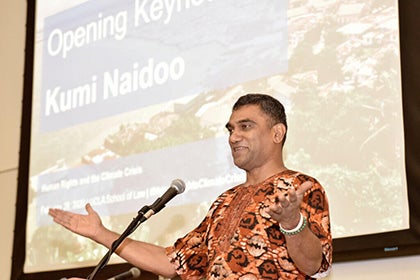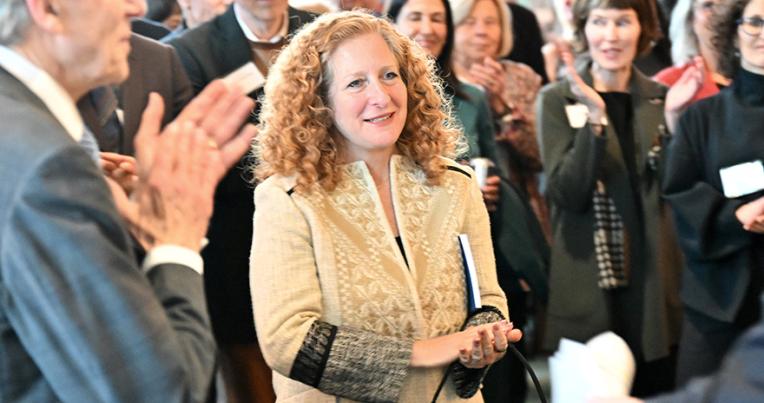Promise Institute Spearheads Initiatives Aimed at Curbing Environmental Crimes
UCLA Law Magazine | Fall 2020 | Volume 43

As wildfires, intense storms and other climate change impacts are devastating vulnerable people around the world, the Promise Institute for Human Rights at UCLA Law has launched an effort to investigate how international criminal law can be used to protect the fundamental rights of people suffering from environmental harms.
The institute launched its efforts at a February symposium, “Human Rights and the Climate Crisis,” which was co-hosted by the law school’s Emmett Institute on Climate Change and the Environment and the Journal of International Law and Foreign Affairs. More than 250 participants joined the day-long event featuring international lawyers, scholars, activists and UCLA Law faculty, including Professor E. Tendayi Achiume; Ann Carlson, the Shirley Shapiro Professor of Environmental Law; Kate Mackintosh, the executive director of the Promise Institute; and Cara Horowitz, the Andrew Sabin Family Foundation Co-Executive Director of the Emmett Institute.
The event was bookended by inspirational keynote addresses from Honduran activist Bertha Zúñiga Cáceres and Kumi Naidoo, former executive director of Greenpeace and secretary general of Amnesty International, who said, “Climate change is the biggest violation of inter-generational human rights. … This is a fight for our grandchildren and our grandchildren’s children.”
The symposium offered inspiration to faculty and students who focus on accountability for crimes against the environment. Following the event, Mackintosh convened an expert workshop on the potential for international criminal law to address environmental harm. The expert group was asked to provide legal advice to the European Parliament on how to bolster environmental protection through international criminal law, and the European Commission has since agreed that a crime of “ecocide” will be part of reflections around amending its existing directive on environmental crimes.
International criminal law was also a focus for the Promise Institute’s first summer fellows, Lydia Heye ’22 and Ashley Sykora ’21, who looked into ways in which the International Criminal Court’s Rome Statute could apply in two notorious cases: deforestation in Brazil and Chevron’s pollution in Ecuador. The students’ findings will be used to help draft language that would add “ecocide” to the statute.
Looking ahead, the Promise Institute will continue to forge new partnerships for international criminal accountability. For example, this fall, Mackintosh joined the board of a new nonprofit, Climate Counsel, established to enable international lawyers to help address the climate emergency.
